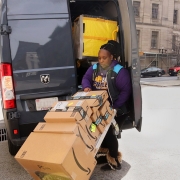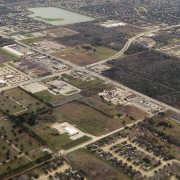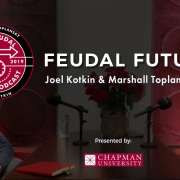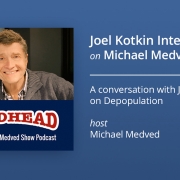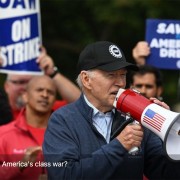America is Headed for Class Warfare
Nothing has revealed the class divide in the U.S. quite like runaway inflation and skyrocketing gas prices. But in addition to the economic impact the staggering incompetence of the Biden administration is having on the working class, there is a political one; it’s undeniably driving working class voters even further from the Democrats and toward the GOP.
But it’s not all good news for conservatives. The recent Amazon vote to unionize could be a precursor to something less appealing to the Right: a nascent rebellion among the vast armies of service workers who for decades have inhabited the lower economic rungs.
The truth is, the rising tide of class conflict is problematic for both parties. The Amazon vote challenges the GOP’s anti-union stance and its free market dogma. But Democrats, too, face an embarrassing conundrum, since the companies most likely to face continued union drives—Amazon and Starbucks among them—are themselves core funders and media stewards of the Democratic Party.
This is not the discussion either liberal oligarchs or Right-wing activists want. They would rather battle over media hot buttons like climate, race, and gender, than meaningfully address working conditions, wages or rapidly rising rents.
In other words, neither party has developed a program to boost proletarian aspirations.
And this despite the fact that the growing class divide could well be the dominant issue of the next decade. Middle- and working-class Americans are widely—and correctly—pessimistic about their economic futures. Even before the civil unrest of recent years and the pandemic, Pew reported that most Americans believed our country was in decline, with a shrinking middle class, increased debt, alienation from leaders and growing polarization.
Almost 70 percent of Americans told pollsters last year that the next generation will be worse off than their parents. And it’s not just the masses. Young people across the country are pessimistic as well: Most people 15 to 24 also think life will be worse for them than for their parents.
They aren’t wrong. The share of American adults who live in middle-income households has decreased from 61 percent in 1971 to 51 percent in 2019, and the pandemic appears to have accelerated this pattern, hitting low-income workers hardest while the recovery helped them least.
Meanwhile, those at the top are raking it in. CEO compensation reached record levels this year, investment bankers on Wall Street enjoyed record bonuses and the giant tech firms now boast a market capitalization greater than the bloated federal budget.
Read the rest of this piece at Newsweek.
Joel Kotkin is the author of The Coming of Neo-Feudalism: A Warning to the Global Middle Class. He is the Roger Hobbs Presidential Fellow in Urban Futures at Chapman University and Executive Director for Urban Reform Institute. Learn more at joelkotkin.com and follow him on Twitter @joelkotkin.
Photo: Elvert Barnes via Flickr under CC 2.0 License.

